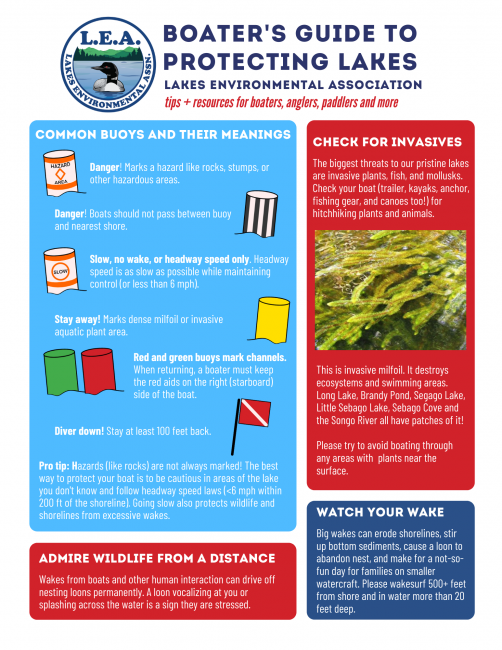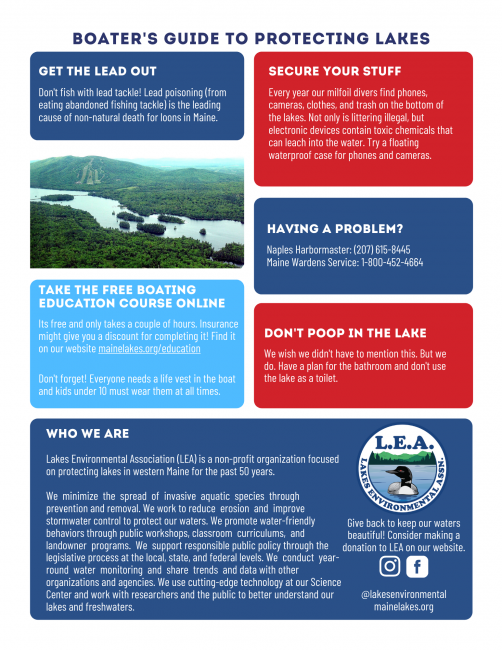How we behave on our lakes and ponds affects not only other people, but also wildlife, shorelines, and water quality. Check out these resources to learn about how to lessen your impact on the lakes!
Important Update on Boating Regulations in Maine
In 2021, the Maine Boating Impacts Coalition (MBIC) was established, comprising staff from various lake groups, lake association members, an engineer knowledgeable about wake boats, a wake boat owner, and lakefront landowners. MBIC conducted an extensive literature review on wake boats and their impacts, recommending that this activity should occur no closer than 500 feet from the shore and in waters at least 20 feet deep. Additionally, the coalition discussed strategies to address the spread of invasive aquatic species, including a “home lake” rule, but did not formalize any recommendations on this issue.
Efforts were made to engage potential legislators to address large wakes in the state. Representative Walter Riseman submitted bill LD 693 after the election, proposing a 500-foot setback and a 20-foot minimum depth restriction for wake surfing, garnering support from 9 co-sponsors.
Despite widespread public support, including approximately 115 testimonies in favor and 15 against, bill LD 693 faced challenges from the Maine Department of Inland Fisheries and Wildlife (MDIFW) due to enforcement concerns. Consequently, the bill was not passed, and instead, a second bill was introduced to study the issue further.
MDIFW convened three stakeholder group meetings in the fall of 2023, culminating in a report that proposed a compromise of a 300-foot setback for all boats. This proposal gained traction, leading to the crafting of a new bill with unanimous support from the IFW committee. However, concerns raised by the Maine Department of Agriculture and Forestry led to the setback applying solely to wake surf boats.
Despite hurdles, the bill was enacted on April 3, 2024, with provisions including a 300-foot minimum distance from shore and a 15-foot minimum depth for all wake surfing activities. Additionally, boat dealers are required to inform purchasers about education opportunities, and MDIFW is mandated to report back to the legislature on enforcement within three years.
It’s noteworthy that the original consensus point from the stakeholder group, emphasizing the importance of informing wakeboat buyers about potential environmental impacts, was omitted from the final bill. However, the unexpected support for a 300-foot setback for all boaters from industry representatives signals potential for future collaboration.
Looking ahead, there is concern that the 2027 report from MDIFW may lead to a reconsideration of current regulations. Thus, ongoing efforts will be necessary to advocate for maintaining or expanding these rules and to counter any attempts to roll back regulations.
To contact the coalition, email MBIC.Maine@gmail.com



Safe boating is good for people, wildlife, and the ecosystem! Take the boating safety course, offered for FREE by the BoatU.S. Foundation. Recognized by the U.S. Coast Guard, approved by NASBLA and the Maine boating license agency.

Choose when and where to take your course. Take it on a desktop, laptop, tablet, or mobile phone. Stop and start anytime!